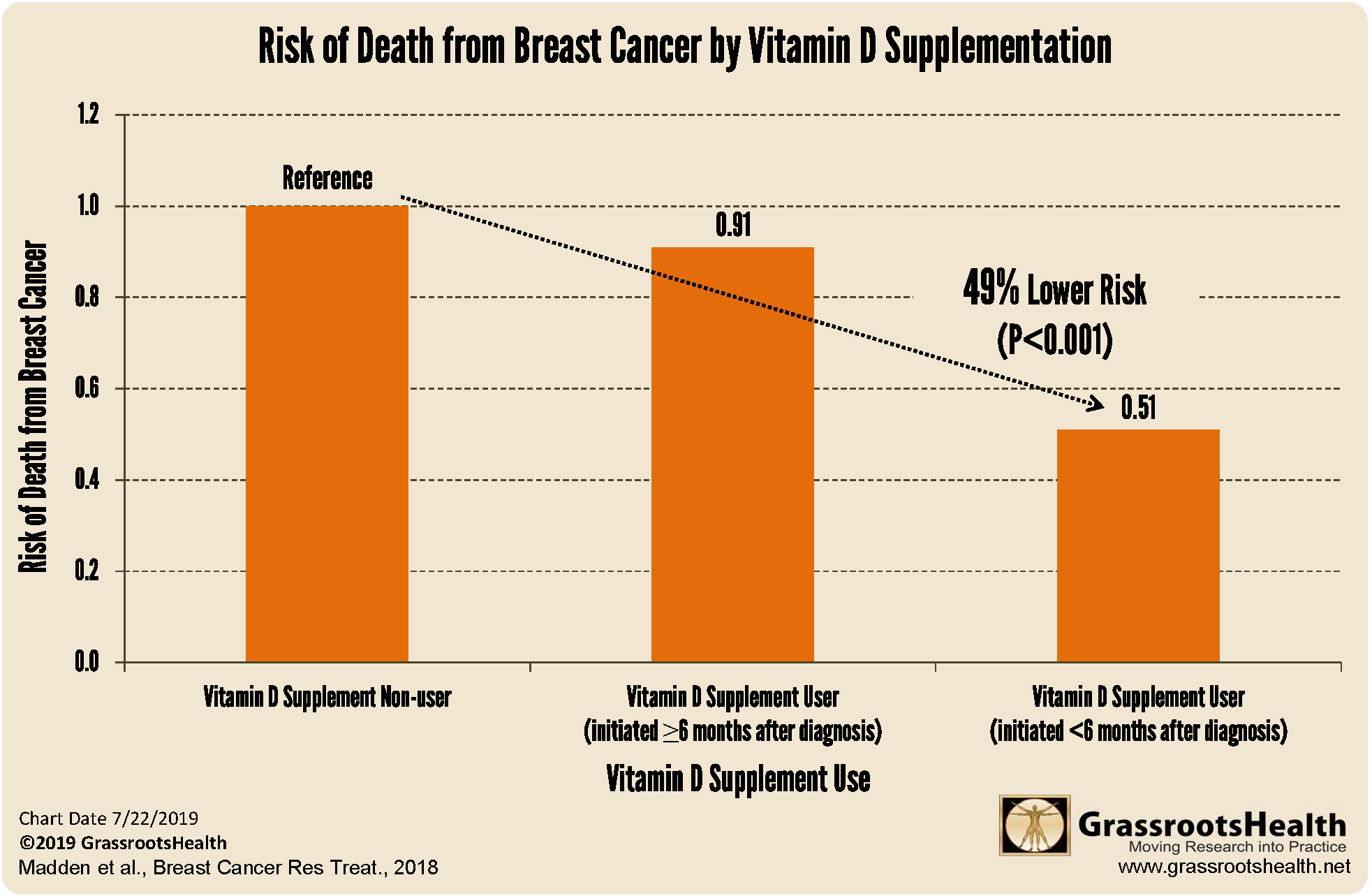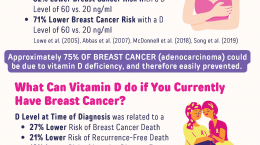Published on July 23, 2019
 Many studies have found that women with higher vitamin D levels have a lower risk of developing breast cancer. But what about women who already have breast cancer? Could vitamin D help them?
Many studies have found that women with higher vitamin D levels have a lower risk of developing breast cancer. But what about women who already have breast cancer? Could vitamin D help them?
In July 2018, results were published from a study assessing the relationship between vitamin D supplement use initiated after a breast cancer diagnosis and associated mortality among 5,417 women in Ireland aged 50 to 80 years old.
What were the findings of the study?
Supplement users were those who were taking more than 400 IU/day and were categorized as starting either within 6 months of diagnosis or more than 6 months after diagnosis. Overall, there was a 20% lower risk of death from breast cancer among those who started using vitamin D supplements after diagnosis compared to those who didn’t (P=0.048). If vitamin D supplementation was initiated within 6 months of diagnosis, there was a 49% lower risk (P<0.001).
These associations were adjusted for other risk factors such as age at diagnosis, smoking status, comorbidities, tumor stage, tumor grade, receptor status, chemotherapy, and medication use.
Have questions you would like to see addressed?
If there is a topic you would like us to address, please let us know! Send your news-worthy questions to jen @grassrootshealth.org and let us know what you think we should answer or share in our news.
Do you know your vitamin D level?
Make sure you and your loved ones know your level of vitamin D! Testing vitamin D levels and taking daily steps to keep it at a target level of 40-60 ng/ml (100-150 nmol/L) is important for all stages of health. Find out your levels today! Log on to the shop (click the link below) to get your tests and see for yourself if your levels can be improved.
Make sure you track your results before and after, about every 6 months!
Click Here to Access the Shop Page
How can I track my vitamin D levels over time?
To help you track your supplement use and nutrient levels, GrassrootsHealth has created an online tracking system called myData-myAnswers. For each specific supplement, you can track what days you take it, how much, and many other details. This will help you know your true supplemental intake and what patterns of use work for you to reach and maintain optimum nutrient levels. Check it out today!








